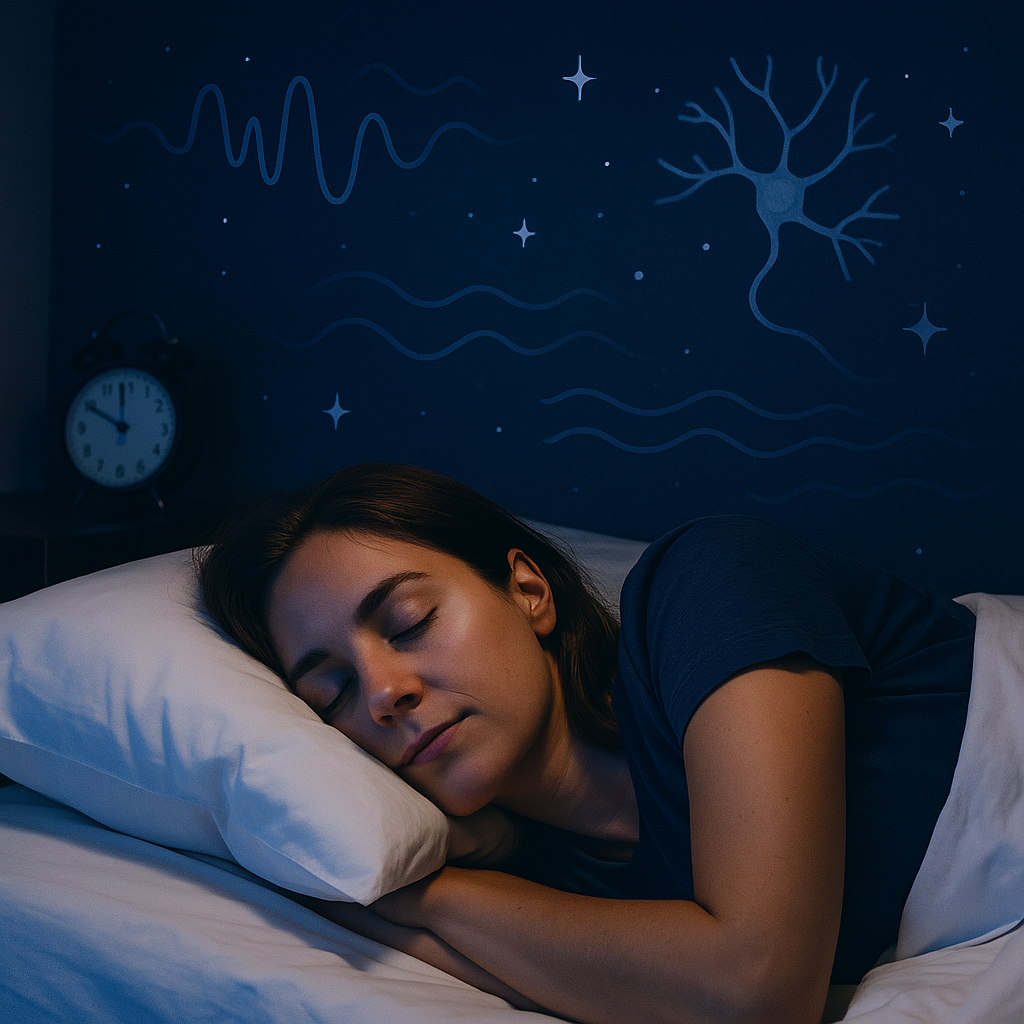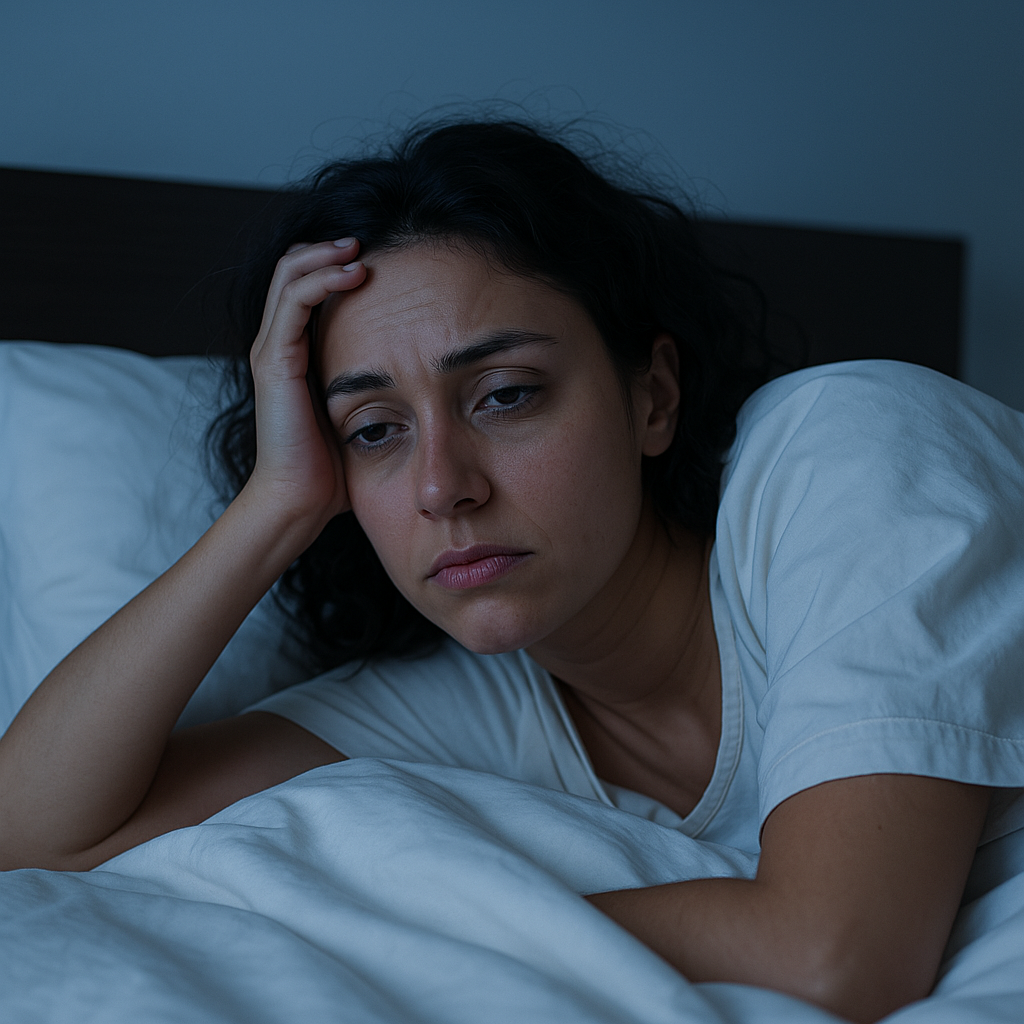We spend nearly one-third of our lives sleeping, but most of us don’t really understand what happens once we close our eyes. Sleep might feel like a passive state, but behind the scenes, your body and brain are busy performing essential tasks that keep you healthy, alert, and balanced.
In this article, we’ll explore what actually happens when you snooze, the different stages of sleep, and why understanding the science behind it can help you wake up feeling more refreshed than ever.
Why Sleep Is Essential
Sleep isn’t a luxury, it’s a biological necessity. It’s the time when your brain consolidates memories, your cells repair themselves, and your hormones rebalance. Without enough sleep, your body starts to lag, and so does your mind.
When sleep is disrupted or cut short, you may experience:
- Difficulty concentrating
- Low energy and mood swings
- Weakened immunity
- Increased risk of chronic diseases
So what exactly is happening while you're asleep? Let’s break it down.
The Stages of Sleep
Sleep is not one uniform state—it cycles through several phases that repeat throughout the night. Each stage plays a specific role in restoring your body and brain.
Stage 1: Light Sleep (NREM)
- This is the drowsy transition from wakefulness to sleep. Your heart rate slows, your breathing becomes more regular, and your muscles start to relax. This stage usually lasts just a few minutes.
Stage 2: Onset of Real Sleep (NREM)
- You become less aware of your surroundings, and your brain starts producing sleep spindles, bursts of brain activity that help with memory consolidation. This stage accounts for the largest percentage of your sleep.
Stage 3: Deep Sleep (NREM)
- Also known as slow-wave sleep, this is the most restorative stage. Your body repairs tissue, strengthens the immune system, and builds muscle and bone. It's also the hardest stage to wake up from.
REM Sleep: Dream Time
REM (Rapid Eye Movement) sleep is where dreams happen. Your brain activity increases, your eyes dart under your eyelids, and your body temporarily becomes paralyzed (so you don’t act out your dreams). REM is crucial for learning, memory, and emotional regulation.
What Happens in Your Body During Sleep
Even though you’re unconscious, your body is anything but inactive during sleep.
- The brain clears out waste, strengthens neural pathways, and processes information from the day.
- Hormone levels fluctuate, including melatonin (which helps you fall asleep) and growth hormone (which aids in repair and recovery).
- The immune system becomes more active, preparing to fight off illness.
- Heart rate and blood pressure decrease, giving your cardiovascular system a chance to rest.
Think of sleep as your body’s nightly tune-up, it resets nearly every system.
Dreams and REM Sleep
Dreaming isn’t just random nonsense, scientists believe dreams help your brain process emotions, solve problems, and integrate memories. REM sleep, where most dreaming occurs, plays a vital role in maintaining emotional balance and cognitive function.
When you don’t get enough REM sleep, you may feel foggy, forgetful, or emotionally off the next day.
How Sleep Cycles Work
A full sleep cycle lasts about 90 minutes, moving through light, deep, and REM sleep. Most people go through 4–6 cycles per night, depending on how long they sleep.
Early in the night, you spend more time in deep sleep. As the night goes on, REM sleep dominates. That’s why cutting your sleep short often means missing out on the REM-rich final hours, leading to that groggy, "off" feeling in the morning.
Interrupted or inconsistent sleep can throw off these natural cycles, reducing the restorative benefits of your sleep.
How Quality Sleep Affects Your Health
Getting enough sleep is great, but getting quality sleep is even better. Here’s what high-quality sleep supports:
- Brain function: Improves memory, learning, focus, and decision-making
- Physical recovery: Helps with muscle repair, inflammation control, and immune function
- Emotional health: Reduces risk of anxiety, depression, and mood swings
- Long-term well-being: Lowers risk of heart disease, obesity, and diabetes
Good sleep isn’t just about feeling well-rested - it’s foundational to every aspect of your health.
Tips to Support Healthy Sleep Cycles
Want to make the most of your nights? Here are some simple habits that support deep, restorative sleep:
- Stick to a consistent sleep schedule, even on weekends
- Avoid screens an hour before bed to reduce blue light exposure
- Create a relaxing bedtime routine - try reading, stretching, or light meditation
- Keep your sleep space cool, dark, and quiet
- Limit caffeine and heavy meals in the evening
- Get morning sunlight exposure to help regulate your circadian rhythm
Sleep isn’t something to catch up on later - it’s something to prioritize now.
Conclusion
Understanding what happens when you sleep helps explain why getting quality rest is so important. From memory consolidation and emotional processing to immune support and tissue repair, sleep touches every corner of your health.
So the next time you consider skipping out on a full night’s rest, remember: your brain and body have work to do while you snooze.
Looking to improve your sleep and build smarter bedtime habits? Slumberite is here to guide your journey. Whether you're just starting to explore better sleep or fine-tuning your nightly routine, Slumberite offers science-backed insights, tools, and tips to help you rest easier and wake up better.



Leave a comment
This site is protected by hCaptcha and the hCaptcha Privacy Policy and Terms of Service apply.